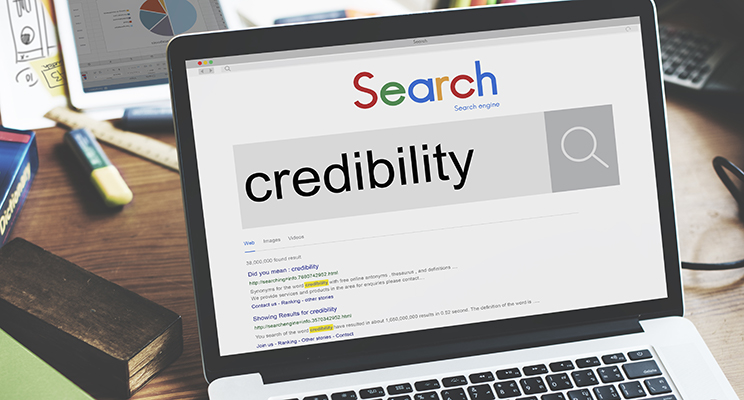I remember one guy who was, by far, the most experienced risk manager we had. He had more related education, certifications, and years of experience than anyone else in the company. But, when he made recommendations, everyone would listen politely, then ignore everything he said. Once he left the meeting, we would call in a few other experts, listen to them, then accept their recommendations. Sounds crazy, right? It wasn’t. Our “expert” had lost credibility by constantly being unreasonable.
What is credibility, anyway?
A quick browse of Internet dictionaries shows that to be credible means to be believed, be convincing, and be able to persuade someone that something will happen or be successful. To be reasonable means to have sound judgement, be fair, sensible and moderate. One of the benefits of being reasonable is that others start thinking that we are credible. We earn credibility by being reasonable.
Why know the difference?
It’s worth knowing the difference between being reasonable and being credible because it helps us understand why we sometimes don’t get what we want at work. By definition, the more credible we are, the more likely we are to get what we want. Money, staff and the attention of leaders are the limited resources that often go to the person who is most credible.
We have control over being reasonable
We don’t have control over what others think or say about our credibility, but we have control over being reasonable. And if we can be reasonable for some period of time, then others may eventually decide that we are credible and help us get what we need. So what does being reasonable look like?
Here’s three ways to be reasonable so we can build our credibility.
Respect different opinions
The first thing we can start doing is respecting different opinions. I tell my clients that to respect means to care, and caring is active. Respect without care is just saying, “That’s your opinion, now here’s my opinion.” Respect means to actually care about someone else’s opinion, and then listen with an open mind; open minds are able to change. We are reasonable when we can incorporate the best that others have to offer into our own perspective.
Understand what can change and what cannot
George Bernard Shaw said,
“The reasonable person adapts themselves to the world, the unreasonable person tries to adapt the world to themselves.”
When we apply this to work, it means understanding what can change and what likely won’t change. If we keep trying to change those things that won’t change, more people will see us as unreasonable. Sometimes the best question we can ask ourselves is, “Am I willing to die on that hill?” If you say yes, it’s best to get a second opinion before you charge up that hill.
Understand when to challenge the status quo
I was a little sneaky when I quoted Shaw because I left out a sentence. He actually said,
“The reasonable person adapts themselves to the world, the unreasonable person tries to adapt the world to themselves. Hence, all human progress depends on the unreasonable person.”
What Shaw meant was that people are often judged to be unreasonable when they are in the midst of challenging the status quo. But they are often called heroes, innovators, or visionaries when we look back on what they accomplished. Sometimes, we have to take a stand, speak-up, and fight for what we think is right. People may see us as unreasonable because they are stuck in the status quo. But if we’re successful, they often admit that it was the right thing to do all along: it was reasonable.
How have you built credibility at work? How have you or others lost it? Please let me know by leaving a comment. You can connect with me and comment on LinkedIn, Facebook and Twitter. Also, please share this article with your teams and coworkers.
You can subscribe to Work Feels Good to read more articles like this one and download free resources. Check out the WFG Resources page to learn more.


